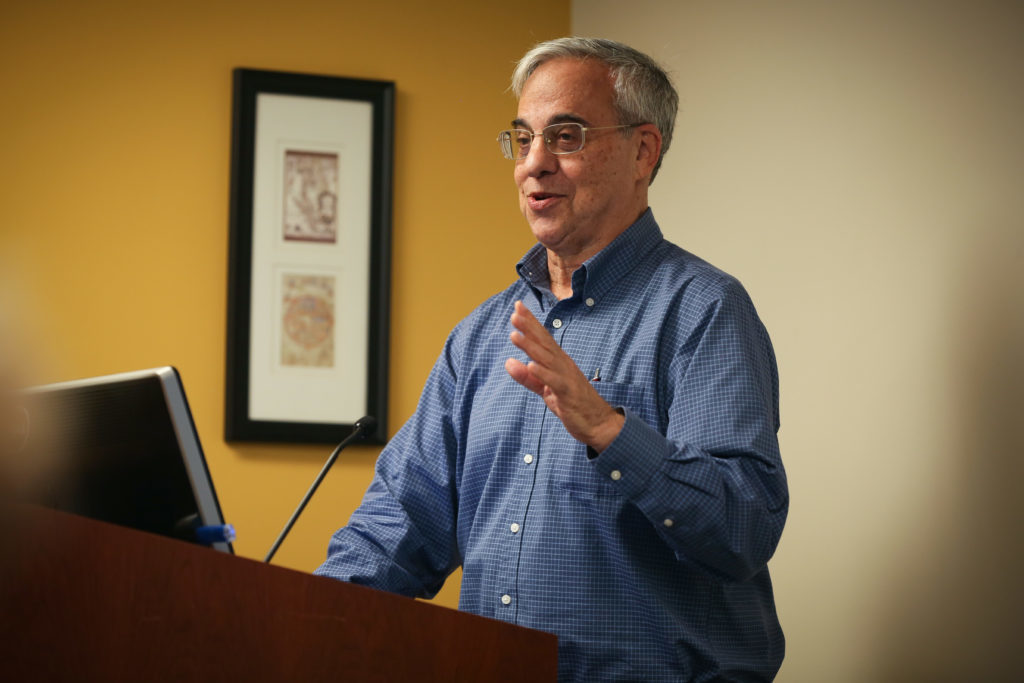A sociology professor compared contemporary housing issues to challenges in the 1960s during a lecture in Samson Hall Friday.
Gregory Squires, a professor of sociology and public policy and public administration, discussed the future of fair housing on the 50th anniversary of the Civil Rights Act of 1968, a piece of legislation also known as the Fair Housing Act that protects home buyers and renters from discrimination. The event stems from a course that reflects on the events of 1968 in D.C. and other celebrations of the year for its 50th anniversary.
During the lecture, Squires played a video about the seven days between Martin Luther King Jr.’s assassination and the passage of the Fair Housing Act on April 11, 1968. Squires said modern steps toward community revitalization follow the spirit of King’s activism.
“As Martin Luther King said, the moral arc of the universe is bending towards justice and there are some things we can point to,” Squires said. “I think perhaps most important is today, there is what I refer to as a fair housing community reinvestment infrastructure.”
Squires talked about the “housing first model,” an approach that pushes against the traditional idea that a person must first gain an education, then a job and finally a house. He said it is difficult for people to manage other aspects of their lives if they don’t have a stable living situation.
He also discussed the “Right to Housing movement,” an initiative encouraging the idea that housing is a right, like public education, rather than a privilege.
“If you live in the U.S., we provide public schools and every family has the right to send their kids – in fact, in most communities, it’s a legal obligation to attend school up until the age of 16 or 18,” Squires said. “But housing is still treated as a privilege, something one earns in the marketplace by pulling yourself up by your own bootstraps.”
Squires said fair housing is about giving people a choice about where they want to live, whether that is in an ethnic enclave or a primarily white community. He added that community issues – like higher crime, lower police presence and poorer schools – are the result of poor public policy, not a factor related to race.
“We do have a lot of research that shows these are neighborhoods that tend to have less access to all the amenities that we view as things that people want,“ he said. “A range of public policies and private practices created that. That’s not because of the inherent characteristics of the African-American or Latino population that happen to live in those areas.”
Squires said an issue that has been present in urban development for the past two centuries is the uneven development of metropolitan areas. He said one way to expand the stock of fair housing is to require inclusionary zoning – zoning that requires a certain share of new housing developments to be allocated for people with income beneath a certain threshold – particularly in areas with rapidly growing real estate markets.
Squires said the biggest challenge in housing today is establishing how to help people access housing in neighborhoods where they’ve historically been denied residence, but said he is optimistic about the future.
“I think there is more than a little light at the end of the tunnel and it’s not just a train coming the other way,” he said.





